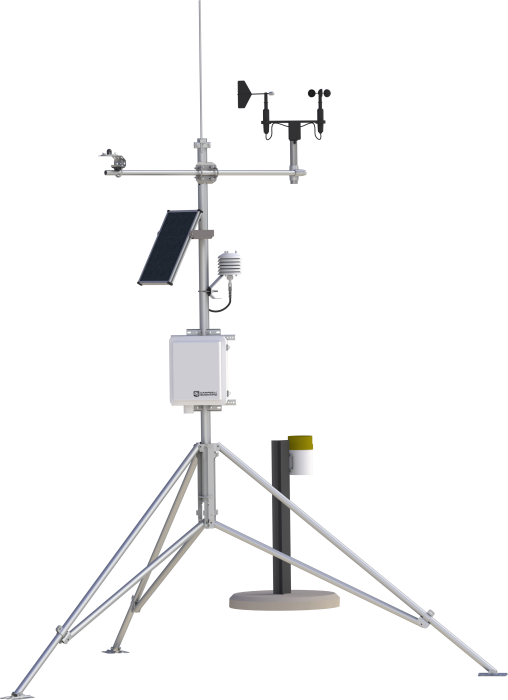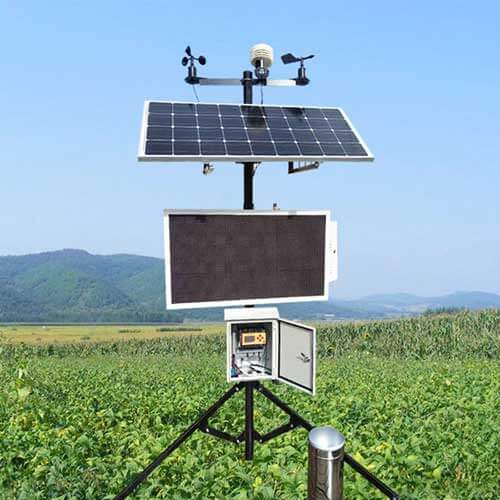Just how to Pick the most effective Weather Stations for Home Usage: A Comprehensive Overview
Just how to Pick the most effective Weather Stations for Home Usage: A Comprehensive Overview
Blog Article
Exploring the Different Types of Expert Weather Terminals for Accurate Information Collection
When it comes to picking the proper weather terminal for data collection, the market supplies a range of choices customized to different demands and setups. Let's explore the nuances of these professional climate stations to grasp their special functionalities and establish the best fit for details data collection demands.
Digital Weather Stations
In the realm of meteorological instrumentation, digital weather stations attract attention as sophisticated devices for precise information collection and evaluation. These advanced terminals are geared up with sensing units that record a vast array of climate criteria such as temperature level, humidity, barometric pressure, wind speed, and direction. The information accumulated by electronic climate terminals is transmitted wirelessly to a central console or a computer for real-time tracking and evaluation.
Among the key benefits of electronic weather terminals is their ability to give high-resolution data with precision and reliability. This level of precision is vital for numerous applications, including farming, research study, air travel, and emergency situation reaction. Electronic weather stations typically come with software that enables users to envision the information in various formats like charts and charts, assisting in less complicated interpretation and decision-making.
Wireless Climate Terminals
Structure on the capacities of digital weather condition stations, wireless weather terminals provide boosted benefit and flexibility in data transmission and surveillance. By using cordless innovation, these weather condition terminals get rid of the demand for difficult wired links, enabling simple setup in different locations. The wireless attribute makes it possible for real-time data surveillance from remote locations, offering meteorologists and climate fanatics with instantaneous accessibility to essential info.
Wireless climate terminals generally consist of sensing units that accumulate information on temperature level, moisture, barometric pressure, wind speed, and direction. These sensors wirelessly transfer the data to a main console or receiver, where it is processed and presented for analysis. Some progressed wireless weather condition stations can also link to the net, enabling customers to access their weather condition data from another location via computer systems or smart devices.

Prosumer Weather Condition Stations
What differentiates Prosumer Weather Stations from typical consumer-grade weather condition terminals? Prosumer Climate Stations bridge the void between professional-grade and consumer-grade tools, offering even more advanced features and higher precision than normal home weather terminals. These terminals are created for climate fanatics, amateur meteorologists, and local business that require more specific information than what consumer designs can supply.
Prosumer Weather condition Stations frequently consist of a broader variety of sensors to measure additional meteorological criteria such as UV index, leaf moisture, and dirt wetness. They likewise often tend to have a higher level of longevity and integrity, making them appropriate for lasting outside usage in numerous ecological problems.


Industrial Weather Condition Stations
Industrial Weather Stations, additionally referred to as meteorological monitoring systems, are specialized tools made for specific and robust climate information collection in commercial settings. These stations are tailored to satisfy the one-of-a-kind demands of commercial procedures where accurate weather condition information is crucial for security, performance, and decision-making processes.
Industrial weather stations are equipped with innovative sensors that can gauge a vast array of atmospheric criteria such as temperature, moisture, wind rate and instructions, barometric stress, and rainfall (Weather Stations). These terminals are usually ruggedly developed to endure extreme environmental conditions usually located in industrial environments
One key feature of industrial climate stations is their capability to provide real-time information monitoring and analysis. This allows commercial facilities to prepare for weather-related dangers, optimize procedures based on climate condition, and ensure the security of workers and equipment. In addition, industrial climate stations can be integrated right into existing commercial control systems for smooth data management and automation.
Mobile Weather Condition Terminals
Unlike fixed industrial weather terminals, portable climate stations offer flexibility and flexibility for on-the-go information collection in different ecological setups. These check these guys out small devices are designed to be easily transferred to various locations, making them suitable for field research study, emergency situation feedback scenarios, farming, construction websites, and exterior occasions.
Mobile weather condition stations typically include sensors for gauging parameters such as temperature, moisture, barometric pressure, wind speed, and wind direction. Some advanced models might additionally include additional sensing units for keeping track of rainfall, solar radiation, and UV levels. Despite their small dimension, mobile weather terminals are qualified of providing precise and reliable information comparable to that of bigger, fixed terminals.
One of the crucial benefits of mobile weather condition terminals is their quick release and convenience of configuration. Generally, portable weather terminals are vital devices for professionals calling for mobile, precise, and timely climate details in varied settings.
Conclusion
To conclude, professional climate terminals been available in numerous kinds such as electronic, cordless, prosumer, industrial, and mobile. Each kind offers special features and capacities for accurate data collection. Choosing the appropriate climate station relies on the certain requirements and needs of the individual. By recognizing the differences in between these kinds of weather condition stations, people can make informed choices to guarantee they get the most dependable and specific weather condition data for their functions.
Building on the capacities of electronic weather condition terminals, cordless weather condition terminals supply enhanced ease and adaptability in data transmission and monitoring. Some advanced cordless weather stations can also attach to the web, permitting individuals to access their weather condition information remotely using computer systems or mobile phones.
Prosumer Climate Stations bridge the void between consumer-grade and professional-grade tools, supplying more sophisticated functions and greater accuracy than typical home weather condition terminals. Weather Stations. Overall, mobile weather condition stations are very useful devices for experts calling for mobile, accurate, and prompt climate have a peek here info in diverse settings
By understanding the differences between these kinds of weather stations, people can make informed choices to ensure they obtain the most exact and trusted climate data for their objectives.
Report this page